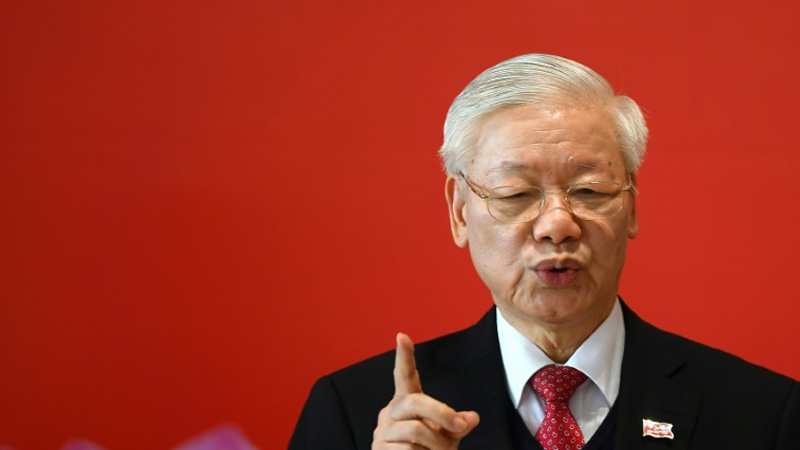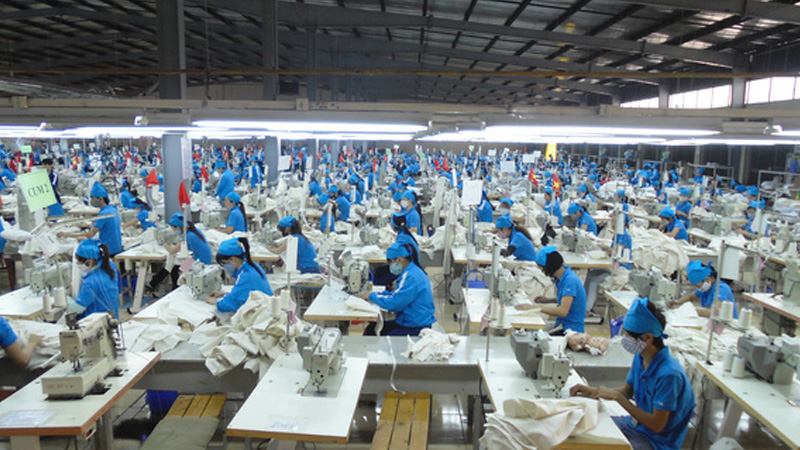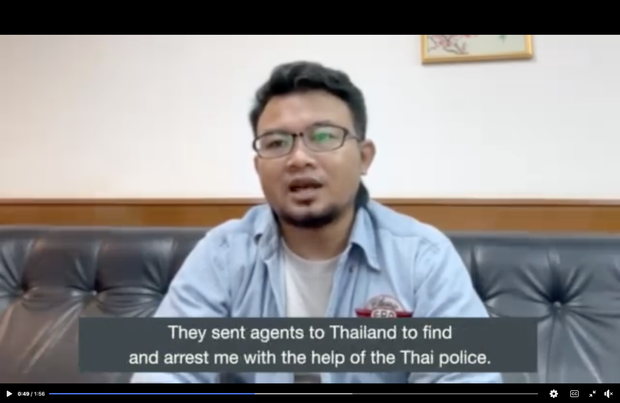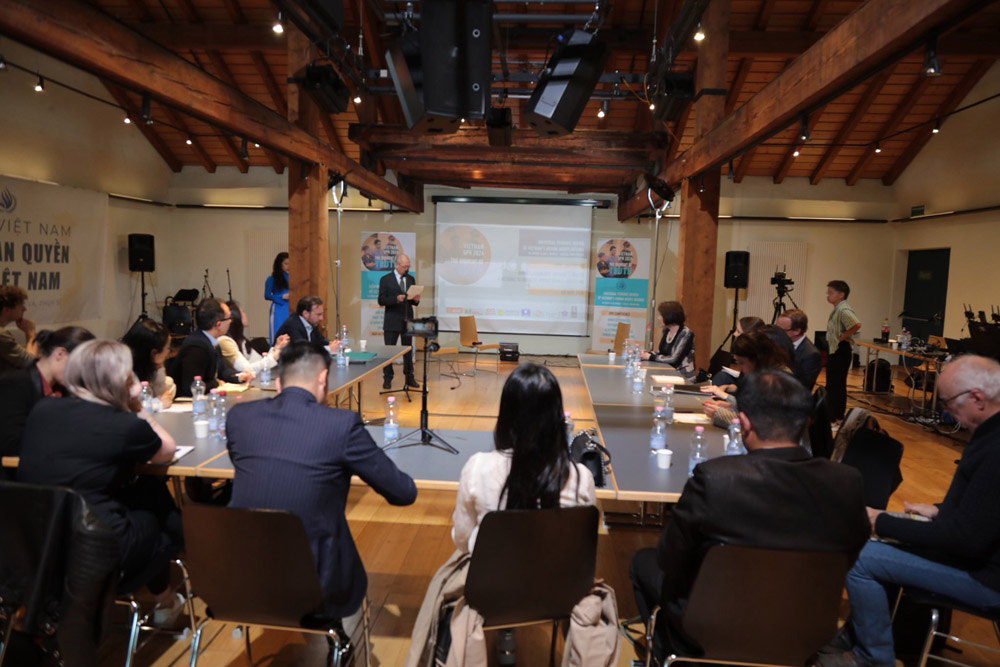April 30, 1975 marks the end of the Vietnam War and the reunification of North and South Vietnam under the North Vietnamese communist regime. Not only does this date mark the end of the war, but it also began a very dark period in Vietnam’s history where millions of Vietnamese citizens fled their homeland by land and sea in search of their ideals of freedom and democracy.
45 years after the Fall of Saigon, Vietnam has changed in many ways. The country has recovered, but the iron fist that the Vietnamese Communist Party has on its people is still very strong. Vietnamese authorities are ready to violate peoples human rights in order to keep their monopoly on power.
On the 45th Commemoration of Black April, Dr. Wolfgang Shäuble, President of the German Parliament and Rainer Eppelmann, Chairman of the Board of the Federal Foundation for the Reappraisal of the Socialist Unity Party of Germany (SED) Dictatorship, delivered hopeful messages to their Vietnamese-German citizens.
* * * * *
Dr. Wolfgang Schäuble
President of the German Parliament
Greetings for the 45th Commemoration of Black April and the end of the Vietnam War
“If one doesn’t look to the past, they will always be blind to the present.”
– Richard von Weizsäcker
In the 20th century, no Vietnamese family was spared by war, persecution, or seeking refuge. The war in Vietnam has demanded millions of victims, and it left behind trauma, separated families, and a destroyed country. The fighting may have stopped 45 years ago but true peace has not passed. Millions of people tried to flee the terror of the new communist regime by boat. Over 200,000 “boat people” drowned, died of thirst, or were captured by modern pirates. If one escaped successfully, they were met by another challenge of building a new life for themself and their family far away from home. Many sought refuge in Germany. Their rescue was made possible by the deployment of the “Cap Anamur,” which wouldn’t have been possible without the vigor of Rupert Neudeck. He and his numerous supporters didn’t fret in light of the pictures coming from the South China Sea. Rather they took action and managed to get the government to agree to admit countless “boat people” into the country, a politically controversial move at that time.
Thus, in the coming decades, the Vietnamese community has grown in Germany, which also consisted of Vietnamese contract workers in the GDR after the German reunification. Many of the already naturalised Germans with Vietnamese heritage are an example of how immigration can be a great contribution to society. They have added to the prosperity in this country and are supporting their families back in Vietnam. These people have become a part of Germany, a prime example of successful integration.
Today we share your grief for the countless victims. We know from our own unfortunate experience, how horrible it is when a country is parted when families are separated, and when basic rights, such as human rights, free speech, and democracy, are denied.
But Germany’s past shows us that freedom will always find a way and will always win.
Remembrance of historic events will always be important; as Richard von Weizsäcker said, “Remembrance guides us in the present with all its difficulties and challenges.”
* * * * *
Greetings from Rainer Eppelmann,
Chairman of the Board of the Federal Foundation for the Reappraisal of the Socialist Unity Party of Germany (SED) Dictatorship
For the 45th Commemoration of Black April held on April 30, 2020, by the Federal Association of Vietnamese Refugees in Germany
Dear members and friends of the Federal Association of Vietnamese Refugees in Germany,
In 2020, we will celebrate the 30th anniversary of Germany’s unification. Germany was divided for more than four decades, which ended on October 3, 1990. This date also marked an unprecedented, peaceful end to the communist-led German Democratic Republic (GDR). Everything happened very quickly. During the autumn months of 1989, people in the GDR used mass demonstrations to overcome the authoritarian rule of the Socialist Unity Party of Germany (SED) with mass demonstrations, brought down the Berlin Wall, and finally spoke out in free elections for a German reunification. No one could have foreseen these tremendous, earth-shattering changes happening a year before; whoever claimed it would have been called a dreamer. After all, the SED regime had ruled over the citizens of the GDR with an iron fist for more than 40 years, incapacitated and indoctrinated the people, had them under surveillance by the Stasi, and locked behind concrete and barbed wire in their dictatorship. And yet this system of oppression was ultimately not permanent.
As a GDR civil rights activist who helped overthrow the communist dictatorship, and shape democratic change toward German unity, I would like to share with you today one of the most important experiences I have made in my political career: dictatorships fundamentally contradict the freedom-loving nature of human beings. They’re unnatural, we’re reluctant towards them, and we will never submit to them for good. That’s why dictatorships don’t last forever even if, after decades of existence, it seems like that to us. But one day they will fall! The history of opposition to the communist dictatorship in Germany shows us in an exemplary way that the ruling classes, despite all their efforts, can never completely suppress free thought and the pursuit of democracy and human rights. These forces will eventually pursue their course as soon as internal and external political conditions develop.
30 years have passed since the Peaceful Revolution and German unity. Our country has developed tremendously and opened up to the world. We, therefore, celebrate our unity together with the millions of people who have emigrated to Germany — like the “boat people” from Vietnam — long ago or only recently from different parts of the world, in order to live in our country for very different reasons. Many of these people have been displaced from their homes due to violence and political oppression, and are now seeking new and fair opportunities in our democracy for themselves and their families.
Currently, the younger generation in Germany naturally grow up with freedom and democracy. They can hardly imagine the plight of refugees, or the conditions and circumstances of authoritarian rule. It is our social responsibility, to remind those of what life under dictatorship means and that our democracy is nothing to be taken for granted. It is important to remember that even today in many countries there are dictatorships and authoritarian regimes that suppress democracy and people’s aspirations for freedom.
Unfortunately, this is the case in Vietnam, a country that is geographically far away from Germany, but close with so many Vietnamese people rooted in our country. One thing is certain: the kaleidoscope of historical observation becomes more colourful in the immigration society. This also applies, of course, with regard to historical anniversaries and the days of remembrance associated with it. Many people in Germany are unaware that 45 years ago, South Vietnam was invaded by North Vietnamese armed forces and has since established a dictatorial communist regime. I would like to send you, the people of the Federal Association of Vietnamese Refugees, my warmest greetings and best wishes for the future. I also ask and encourage you to share your experiences with oppression and dictatorship to the people in Germany, no matter where they come from, how precious and worthy protecting our democracy is!
* * * * *
The German version of Dr. Wolfgang Schäuble’s message can be found here and the English version can be found here.
The German version of Rainer Eppelmann’s message can be found here and the English version can be found here.






